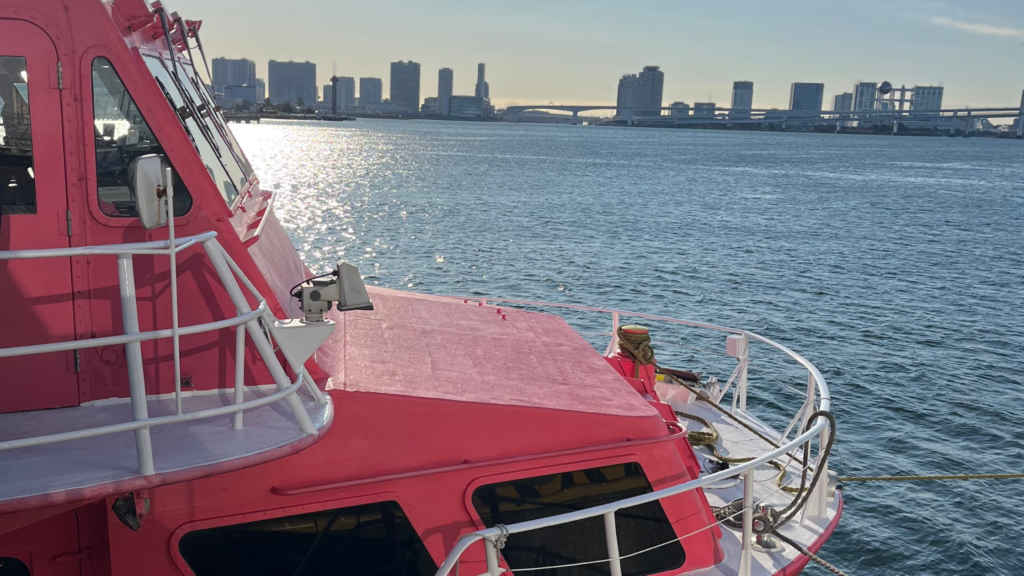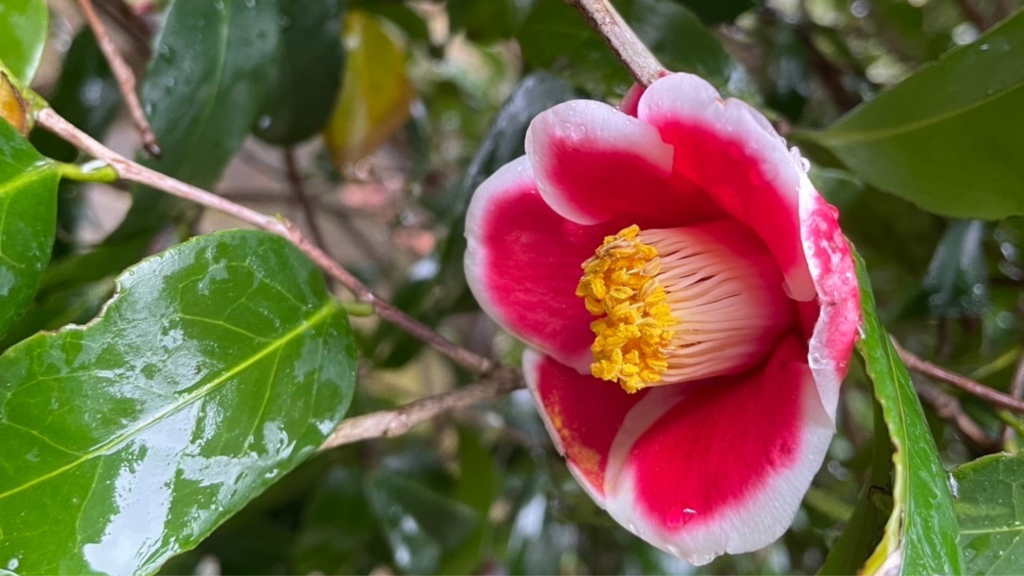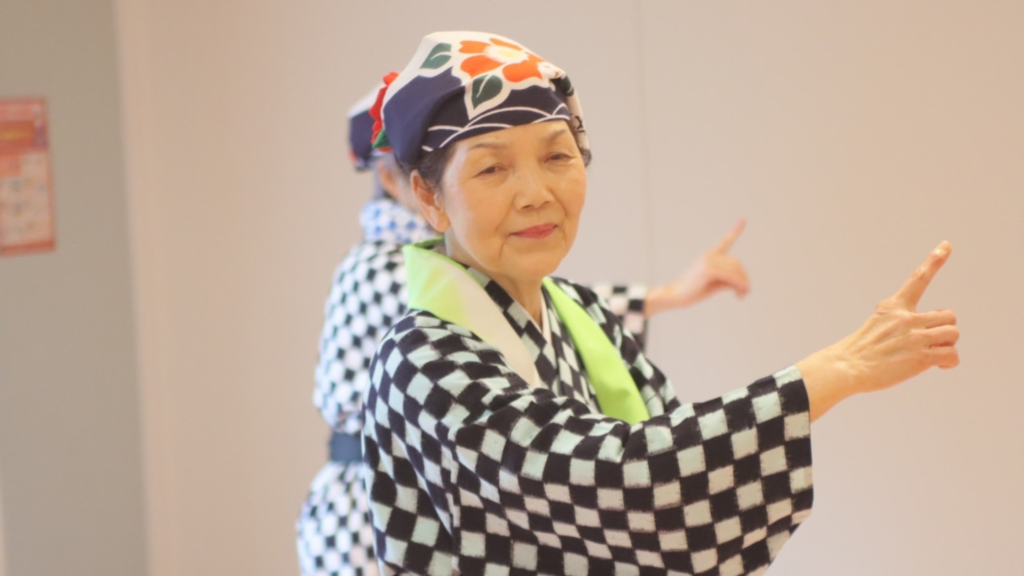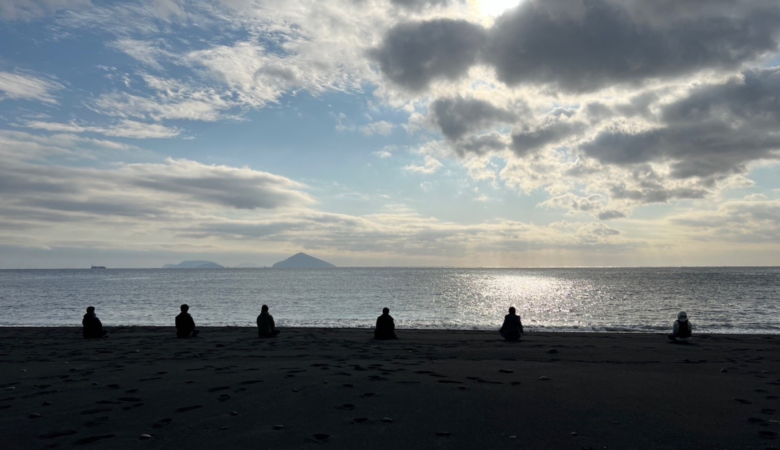Hello, everyone. Today, I’d like to share a retreat journey to Izu Oshima, one of Tokyo’s enchanting islands.
On this island, you can connect with untouched nature—the land, sea, and forest—while meditating, allowing your mind to clear and experience a sense of empowerment.
Izu Oshima, which can be reached in about 2 hours by boat from Tokyo, was a wonderful place where you can enjoy not only summer marine sports and hiking, but also mindfulness, ancient local life, and contact with the people. It is a recommended place for those who want to get away from the city and experience local island life, so I would like to introduce it.

What is Izu Oshima
It is the largest island of the Izu Islands, located 120 km south of Tokyo. At its center stands Mount Mihara, an active volcano with an elevation of 758 meters above sea level. The island is part of the Fuji-Hakone-Izu National Park, with about 97% of its land protected under the Natural Parks Act, preserving its natural landscapes and ecosystems.
Inhabited for around 8,000 years, the island currently has a population of about 7,000. Historically, it served as a penal colony, and intriguing legends surround its past. In literature, Nobel Prize-winning author Yasunari Kawabata depicted Izu Oshima as the setting for his masterpiece, “The Izu Dancer”. Additionally, the island is renowned for its abundant marine products, the Camellia and Ashitaba which is famous for the healthy food.

How to Visit
You can reach the island by both plane and boat. A 25-minute flight from Chofu Airport or a 2-hour boat ride from Takeshiba port in Tokyo will get you there. Alternatively, it’s just 45 minutes from Atami in Shizuoka. Once on the island, you can explore its 46-kilometer circumference by bus, taxi, rental car, or bicycle.

Recommendation spots
While there are many attractive spots on Izu Oshima, here are some highlights:
Ura Sabaku(Back Desert)
On the east side of Mt. Mihara, which rises in the center of the island, there is a “back desert” covered with black volcanic rock.
Picture this: Magma, unleashed by countless eruptions, scorched the land, leaving behind a desolate expanse. The earth itself bears the scars of ancient fire, and the once-green vegetation now lies charred. As you step upon the volcanic rocks, their crunch echoes—a symphony of footsteps, wind, and distant birdcalls.

Amidst this stark beauty, take a moment to breathe. Listen to the rhythm of the elements—the wind whispering secrets, the rocks beneath your feet, and the vast sky above. Here, in this “nothing” place, let your mind quieten, and your senses awaken. Feel the pulse of nature—the same force that shaped this black desert—and find solace in its ancient embrace.
Whether you’re seeking adventure or inner reflection, the Back Desert awaits, inviting you to lose yourself in its enigmatic allure.

Sa no hama(Black sandy beach)
Consisting of 1 km of basalt black sand, this black sand beach was formed by lava crushed by wind and rain over a long period of time, and volcanic ash flowing down mountain streams. The sand is moved by the waves and wind, but at the same time, the sand flows from the valley, so the coast is not eroded and this beautiful landscape is maintained. This place is also a spawning ground for sea turtles.

When you sit on the black sand beach and look at it, you will be amazed at the warmth of the sand even though it is winter. If you meditate on this sandy beach for a while, you will only hear the sound of the waves and the sound of the wind. It is also wonderful to spend time facing yourself while watching the slowly flowing clouds and crashing waves.

Hajikama Shrine
The enchanting eastern side of Izu Oshima, where myths and legends come alive. Here, in the Senzu area, the ancient tale of Hiimi-sama still weaves its Mystical. On every January 24th, locals honor this legend through time-honored customs. Deep within a serene forest lies the Hajikama Shrine, intricately tied to Hiimi-sama’s story. This sacred spot is renowned as one of the island’s strongest power spots—a place where energy flows freely.

As you step into the forest, a hush settles around you. Towering cedar trees reach for the sky, their ancient roots anchoring them to the earth. Here, amid the quietude, you can reflect on the eons that shaped this land. The whispers of history blend with the rustling leaves, inviting you to connect with your inner self.
Close your eyes and breathe and embrace the silence. Feel the pulse of the island—the same energy that resonates through the Hajikama Shrine. Let the stillness envelop you, and perhaps, just perhaps, you’ll glimpse the secrets whispered by the ancient cedars.

Whether you seek solace, inspiration, or simply a moment of wonder, the Hajikama Shrine awaits, ready to share its timeless wisdom.
Camellia & Flower Garden
Izu Oshima is renowned as the “Island of Camellias.” These elegant trees, planted across the island as windbreaks, grace the landscape with their beauty. Camellias, revered flowers in Europe, find in the “Camelia and flower garden”, where approximately 2,000 camellia trees thrive. This camellia orchard holds international acclaim as an excellent garden, drawing camellia enthusiasts from around the world.

From October to May, you can admire the camellias in beauty bloom. And on clear days, don’t miss the breathtaking view of majestic Mount Fuji in the distance.

Step into this floral haven, breathe in the fragrant air, and let the vibrant colors soothe your soul. Izu Oshima’s Camellia & Flower Garden invites you to experience the magic of nature’s artistry.
Habu Port Town
Step into the nostalgic Habu Port Town, a quaint fishing town nestled in the southern part of the island. Here, time slows down, inviting you to savor every moment.
It’s a Crater Lake’s Transformed to the port. Picture this place in its infancy—a crater lake cradled by ancient volcanic hills. But as the years unfolded, the harbor emerged, its waters teeming with life. In 1800, the first ships docked, and Habu Port was born—a gateway to adventure and memories.

You can also feel the literary echoes. As you amble along the cobblestone streets, you’ll encounter echoes of literature. The inn was the setting for Yasunari Kawabata’s novel “The Izu Dancer” still stands—a testament to love, longing, and fleeting encounters. Imagine the characters who once sought refuge within its walls—their stories etched into the very inn.

But Habu Port City isn’t just a relic of the past. It breathes anew with renovated inns and cozy cafes, their wooden beams weathered by time. Step inside, and you’ll find warmth, freshly brewed coffee, and tales whispered by the sea breeze. Take a leisurely stroll through this harbor of memories.
Anko-san
Anko-san is a hard-working woman who lives in Izu Oshima. Anko-san played a vital role in supporting the island’s challenging life. While men were away working at sea or in the mountains, these women diligently visited the communal well known as “Hamanka”. There, they fetched water and carried firewood, ensuring the well-being of their homes and communities.

Anko-san’s attire includes a kasuri (traditional patterned kimono) and a tied mae-tare (a type of apron). They also wear a cloth headband. Their graceful posture and determined expressions left a lasting impression on visitors, including poets and artists who immortalized their beauty.
These traditional Anko-san dancers perform hand movements in sync with local folk songs, creating a unique and rustic beauty that captivates onlookers.

Summary
The retreat trip to Izu Oshima refreshed my mind and body, and I felt like I was infused with new energy.
Izu Oshima, where nature weaves its magic, and power spots await your discovery. This island, cradled by the sea, invites you to embark on a journey of wonder and self-reflection.
From ancient shrines to mystical forests, each spot resonates with energy. Perhaps you’ll find solace at the Hajikama Shrine, where whispers of centuries past linger. Or lose yourself in the Back Desert, where black volcanic rock tells tales of primordial fire.
Gaze upon vistas that defy description. The azure sea stretches beyond sight, and if luck favors you, Mount Fuji graces the skyline—a majestic scenery.
Indulge in the island’s warm embrace. Soak in mineral-rich hot springs, their healing waters soothing both body and spirit. And when hunger calls, savor local delicacies—seafood fresh from the ocean, camellia-infused treats, and flavors that dance on your tongue.
Engage with the islanders—their stories, laughter, and resilience. Share a cup of tea, listen to their tales, and feel the heartbeat of this place.
And as night falls, let the silence envelop you. Close your eyes, face the mirror of your thoughts, and find answers—or perhaps more questions. In this tranquil nature, you’ll rediscover yourself.
So, I recommend staying for minimum two days, let the island’s magic seep into your heart, and emerge anew—a seeker, a dreamer, and a soul ready to face the world.

